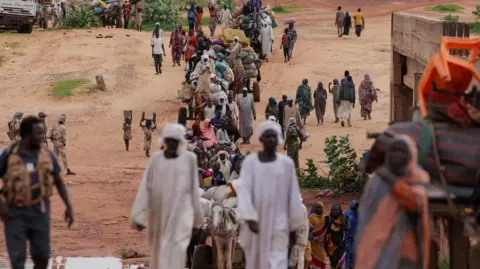Reem al-Kari and her cousin Lama are searching through dozens of photos of children spread out on a desk. Lama thinks she spots one with a likeness to Karim, Reem's missing son.
Karim was two-and-a-half when he and his father disappeared in 2013 during Syria's civil war as they ran an errand. He is one of more than 3,700 children still missing since the fall of the Assad dictatorship ten months ago. He would now be 15.
Are his eyes green? asks the man behind the desk, the new manager of Lahan Al Hayat, a Syrian-run children's shelter established in part with support from Asma al-Assad, the former first lady. The task of identifying missing children is overwhelming.
Lahan Al Hayat is one of several Syrian childcare facilities that sheltered children of detained parents throughout the civil war, often re-homing them instead of returning them to relatives. Many children were falsely recorded as orphans, making it difficult for families to trace them.
After the regime's fall, access to previously unavailable documents led to the creation of a database documenting 323 children hidden by the regime, following an investigation by the BBC. Analysis showed that the charity SOS Children's Villages International was the primary organization managing displacements. The charity, which operates in over 130 countries, reportedly generated significant income through its connections.
Whistleblowers from SOS revealed that senior positions were appointed directly by the Assad palace, casting doubt on the charity's operations, especially concerning political affiliations with the regime. Families have shared horrific testimonies regarding their children’s experiences at these shelters before and after the collapse of the regime.
SOS International, in response to these allegations, expressed regret over the separation of children from their families but defended their practices and denied formal connections to the Assad family.
Many desperate parents, including Reem, continue their search for their children amidst broken systems, lost records, and the lingering uncertainty of their fates in an unprecedentedly hostile environment.
Reem reflects on the frustration of navigating a system that shows little regard for her anguish: “It’s been six months since the liberation, and yet there’s still no clear path for mothers looking for their children.”

















